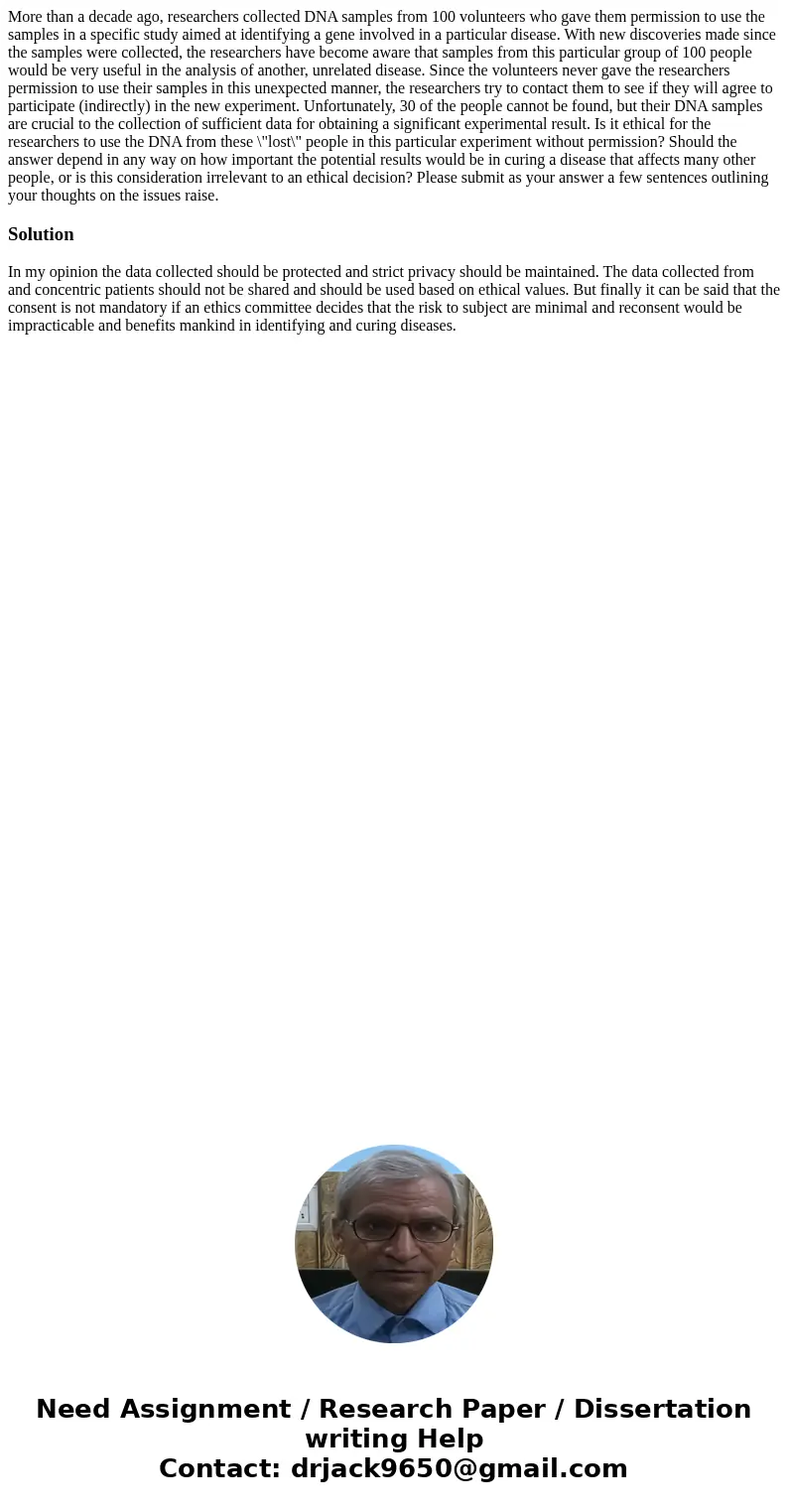More than a decade ago researchers collected DNA samples fro
More than a decade ago, researchers collected DNA samples from 100 volunteers who gave them permission to use the samples in a specific study aimed at identifying a gene involved in a particular disease. With new discoveries made since the samples were collected, the researchers have become aware that samples from this particular group of 100 people would be very useful in the analysis of another, unrelated disease. Since the volunteers never gave the researchers permission to use their samples in this unexpected manner, the researchers try to contact them to see if they will agree to participate (indirectly) in the new experiment. Unfortunately, 30 of the people cannot be found, but their DNA samples are crucial to the collection of sufficient data for obtaining a significant experimental result. Is it ethical for the researchers to use the DNA from these \"lost\" people in this particular experiment without permission? Should the answer depend in any way on how important the potential results would be in curing a disease that affects many other people, or is this consideration irrelevant to an ethical decision? Please submit as your answer a few sentences outlining your thoughts on the issues raise.
Solution
In my opinion the data collected should be protected and strict privacy should be maintained. The data collected from and concentric patients should not be shared and should be used based on ethical values. But finally it can be said that the consent is not mandatory if an ethics committee decides that the risk to subject are minimal and reconsent would be impracticable and benefits mankind in identifying and curing diseases.

 Homework Sourse
Homework Sourse